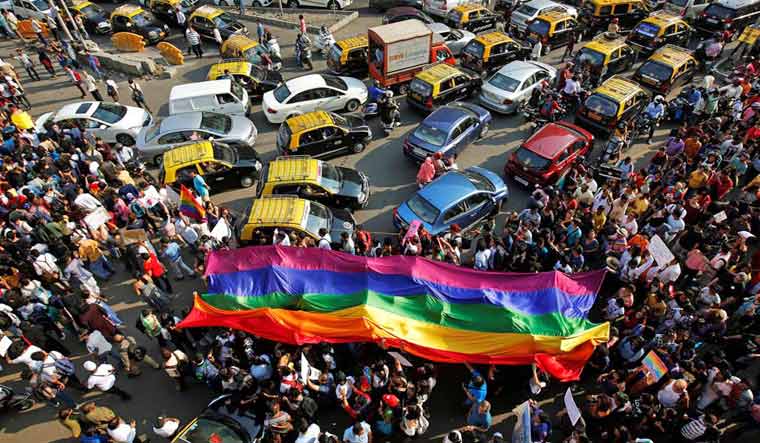The Supreme Court on Tuesday declined to legalise same-sex marriages, stating that it is the legislature that has to change the law. However, the five-judge bench recognised the rights of the queer community in India, including to adopt children.
“There is no unqualified right to marriage except as it is recognised under the law. Conferring legal status to a civil union can only be through enacted law,” says the Supreme Court on same-sex marriage.
At the outset, Justice Chandrachud said there are four judgments — by himself, Justices Sanjay Kishan Kaul, S Ravindra Bhat and P S Narasimha — in the matter. Justice Hima Kohli is also a part of the five-judge bench.
Chief Justice D Y Chandrachud added that it was for the Parliament to change the Special Marriage Act and the court can’t make law but only interpret it. “This court can’t make law. It can only interpret it and give effect to it,” he said.
However, it directed the Centre, states and Union Territories (UTs) to ensure that the queer community is not discriminated against. The court also recorded Solicitor General Tushar Mehta’s statement that the Centre will form a committee to decide the rights and entitlements of persons in queer unions.
He said choosing a life partner is an integral part of choosing one’s course of life. “This right goes to the root of the right to life and liberty under Article 21. Right to enter into a union is also grounded in Article 19(1)(e),” the CJI observed.
“For the full enjoyment of such relationships, such unions need recognition and there cannot be denial of basic goods and services. The CJI directed the police to conduct a preliminary enquiry before registering an FIR against queer couple over their relationship.
The CJI Chandrachud said homosexuality or queerness is not an urban concept or restricted to the upper classes of society. He added that queerness can be regardless of one’s caste or class or socio-economic status.
In a major move, the court allowed queer couples to adopt a child. However, the five-judge bench differs in certain aspects, especially on the applicability of adoption rules for queer couples.



